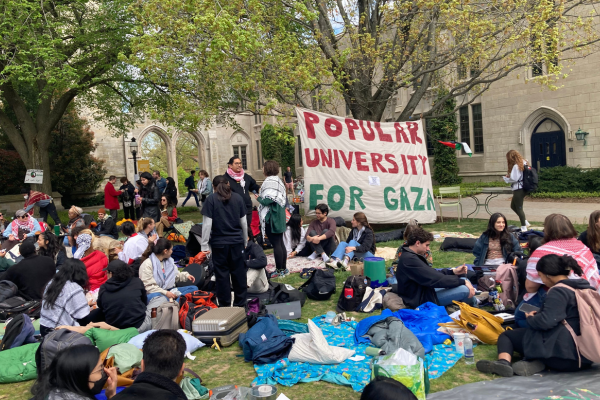Just a short walk from my home near Princeton University, students, faculty, staff, and community members have come together to demand the university divest from financial and military support of the state of Israel and release a public statement calling for a ceasefire in Gaza — one of many similar protests that have been happening at college campuses across the U.S. over the past two weeks. Stroll by the encampment at any given time, and you’ll see folks of all ages and races gathered together on blankets and tarps sharing crowdfunded hot meals as scholars address the group; kids play and others offer physical and spiritual care, or clean up the encampment grounds. You might hear community announcements, prayer, music, or, at times, chants like “disclose, divest / we will not stop / we will not rest.”
Read the Full Article

